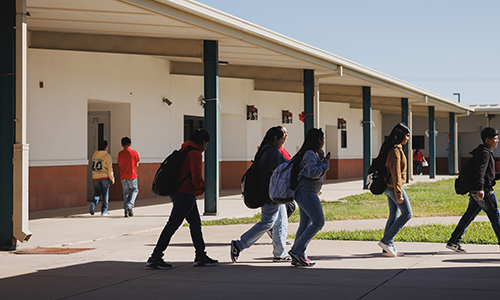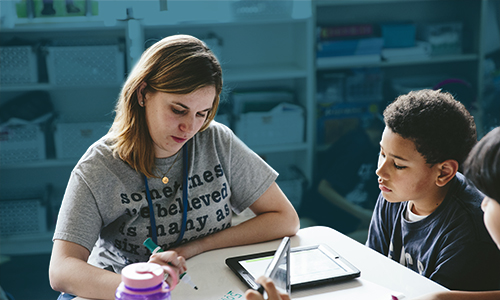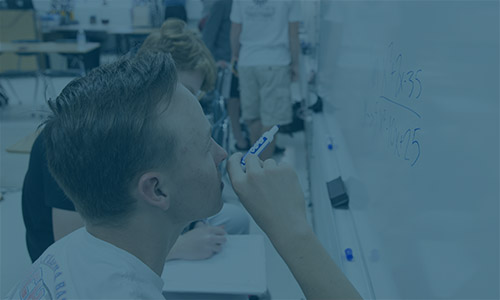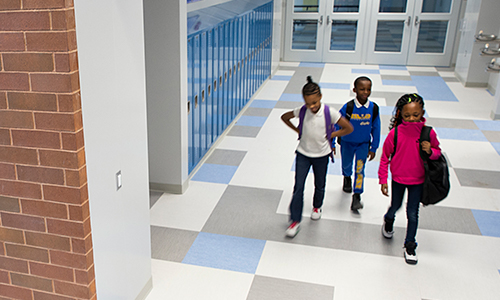Journal article
Mind the kinder-gap: New data on children’s math and reading skills as they enter kindergarten
October 2020
Phi Delta Kappan 102 (2)
By: Christine Pitts, Megan Kuhfeld

Abstract
Data on children’s academic preparation at kindergarten entry tell a story of both declining achievement and shrinking gaps.
This article was published outside of NWEA. The full text can be found at the link above.
Topics: Early learning, Equity
Associated Research

Unassigned Asset Type
Early warning: Kindergarten readiness skills are trending downward
Related Topics


Unequal Access to 8th-Grade Algebra: How School Offerings and Placement Practices Limit Opportunity
This NWEA research brief examines how access to early Algebra – a key gateway to advanced high school math, STEM majors, and higher lifetime earnings – remains highly inequitable across the United States. Using NWEA data from 162,000 eighth-grade students across 22 states, the study looks at both whether schools offer Algebra by 8th grade and how students are placed when it is offered. The findings point to significant gaps tied to school poverty levels, geography, and race/ethnicity.
By: Daniel Long, Megan Kuhfeld, Scott J. Peters
Topics: College & career readiness, Equity, Math & STEM


This is the technical appendix to the “Unequal Access to 8th-Grade Algebra: How School Offerings and Placement Practices Limit Opportunity” research brief, which examines how access to early Algebra remains highly inequitable across the United States.
By: Daniel Long, Megan Kuhfeld, Scott J. Peters
Products: MAP Growth
Topics: College & career readiness, Equity, Math & STEM


NWEA’s MAP Growth National Dashboard provides timely trends and data on U.S. student academic achievement and growth for grades K-8. This free public tool supports district leaders, state and federal policymakers, and other education stakeholders in interpreting local data within a broader national and state context. It helps identify areas of strength, shine light on disparities, and ground policy conversations in evidence.
Products: MAP Growth
Topics: COVID-19 & schools, Equity, Growth


Specialty Schools National Dashboard
This interactive tool provides information about academic achievement and growth for several categories of US schools that used MAP Growth assessments. These groups included secular and religious private schools (including Roman Catholic, Jewish, Lutheran, Islamic, Seventh-Day Adventist, and other religiously affiliated institutions) as well as public charter schools. Use this dashboard to examine patterns of growth and achievement across seasons, academic subjects, school types, and student demographics.
Products: MAP Growth
Topics: COVID-19 & schools, Equity, Growth


The MAP Growth Goal Explorer is designed to support and simplify the goal-setting process by showing a range of possible fall-to-spring growth goals against the backdrop of important academic benchmarks.
Products: MAP Growth


Family engagement as a long-term strategy for continued COVID recovery
This NWEA research report emphasizes the vital role of family engagement in helping students recover academically from the disruptions of the COVID-19 pandemic. The report synthesizes current research on family engagement, examines the effectiveness of current strategies, identifies common barriers, and offers guidance for how districts can communicate more effectively with families about student progress.
By: Ayesha K. Hashim, Rebecca Johnson, Rachel Perera
Topics: COVID-19 & schools, Equity, Growth, Guidance


Boys regain the advantage in middle school STEM skills: Post-COVID trends in gender achievement gaps
The research study used a robust set of data from three national assessments to examine trends in gender gaps in 8th grade STEM skills over the course of the pandemic.
By: Megan Kuhfeld, Karyn Lewis, Gustave Robinson
Products: MAP Growth
Topics: COVID-19 & schools, Equity, Growth, Math & STEM




